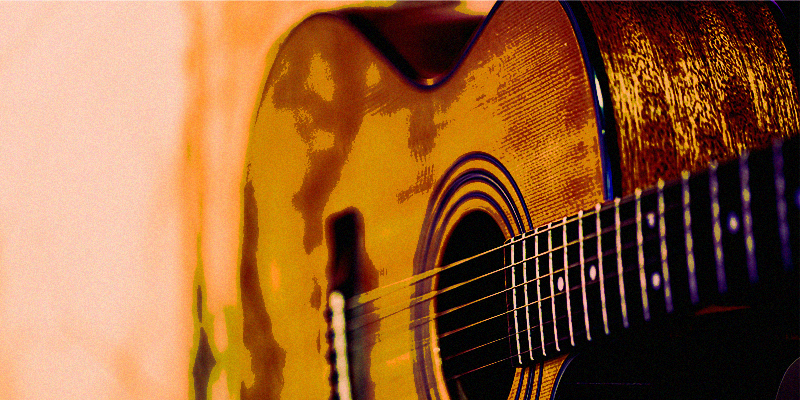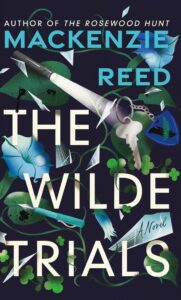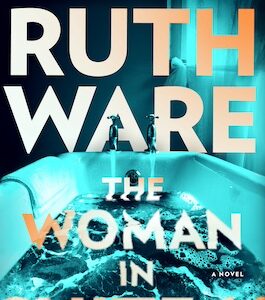At ten years old, I wrote my first song.
I remember it vividly because I performed it at my fourth grade talent show. It was called “Be You” and told the story about someone telling their friend to be themselves because they were beautiful just as they were. I didn’t know it then, but it was advice I needed to hear, too. As I’ve grown older, it’s funny how much I realized the things I wrote were often things I needed in disguise. That’s something that’s still true to this day.
After that talent show, I started learning guitar and would often retire to my room after school to write songs. I wrote them everywhere. In journals and notebooks, in the notes app of my mom’s iPad, in the notes app of my iPod Touch, and eventually on numerous notes apps across numerous phones. There were also a lot I didn’t write down, and I still regret that.
At its heart, songwriting is like any other act of creative expression: it’s storytelling. And sometimes, those stories are made up. It would bother me greatly when people would point at Taylor Swift and say things like, “To write all those songs, she must have dated soooooo many boys.” The take felt so unimaginative, as if to say we can only craft good and believable stories around things we’ve personally experienced. And so what if she did date all those boys?
That’s besides the point.
The truth is, for a long time, I only wrote songs because it felt like all I knew how to do. But the songs kept getting longer and the backstories more complex. Suddenly I had all these songs, all these pages and pages of journals filled up, but I still felt like I had so much to say. It wasn’t enough anymore to get lost in a song. I wanted to get lost in a world.
In seventh grade, I started writing my first book.
There were certainly other stories before that, but the memory of sitting in the back of my religion class, notebook flipped to a random blank page and pencil in hand, is as vivid as the talent show. Now, I know why both have stuck with me for so long. Because they were the precipice of me finding my thing. You know. The thing that lights you up inside and makes you think you’re doing exactly what you were meant to do.
The problem is, at the time, I didn’t know one could have more than one thing. There are no rules to it, actually. But I didn’t know that, so songwriting still took precedence over everything else, and writing my very first book – a portal fantasy – was reserved for sneaky sprints during class. I still silently thank that teacher all the time for not disciplining me over it, because she would have been totally right to.
It wasn’t until my freshman year of college that tragedy struck – for the better. I was planning to let my songwriting carry me through a Music Business degree and to Los Angeles or Nashville post-graduation, where I would be on my way to becoming a songwriting star. But fate stepped in and I got denied from my “dream” program – twice. It was so embarrassing.
I thought my life was over at the ripe age of 18. My one thing, and I’m not actually even good at it? But in truth, it wasn’t my one thing, and getting turned down from the program freed up time for me to get back to that book I started but never finished. I finally completed the first draft in college, then went on to write two more books in the same series.
That trilogy didn’t get me an agent or get published (for the better, honestly), but it did teach me that my one thing mentality was kind of BS. However, none of it was a waste. Songwriting laid the foundation for me to know how to tell stories. I started honing my ability to craft engaging narratives and palpable emotions before I knew they were fundamental parts of storytelling. The hard part of songwriting for me was making everything I wanted to say fit into a three minute song. Suddenly, the field was wide open. I had thousands and thousands of words to play with.
Of course, I quickly learned that books have their constraints, too. Word counts and genre expectations and age audience parameters. And that doesn’t even begin to encapsulate publishing. How there are different types, like traditional and indie, and that for traditional, you usually need a literary agent. They’re the ones who actually pitch the book to editors, but they also serve as liaisons between you and publishers. In my experience, they’re also mentors of a sort and help guide your career.
I had to learn about story structure and plot beats. Save the Cat! Writes a Novel by Jessica Brody became my Obi Wan. It was all so new and exciting and a little overwhelming. For so long, it was just my songs and me. After my fourth grade debut, I rarely sang my own stuff in front of people outside of my family. I was heading down a similar path with books. I could write them all day long, but surely I couldn’t actually publish them.
Well, I could and I did! I pushed past my comfort zone and put all my research to the test. I edited my book. I queried literary agents. I failed and did it again, until I was successful. We went on submission to editors. The book didn’t sell and we tried again. That next book turned into The Rosewood Hunt, my debut, which was a two-book deal. The Wilde Trials followed.
I look at my songwriting background now with nothing but pride. It’s been years since I’ve written a new song, though I still think about it often and want to get back to it. But for now, I’m buzzing with book ideas begging to be written. The creativity never left me, it just took a new shape. I expect it will again and again and again throughout my life. All I can do is keep giving it the space to grow and continue to nurture all the things (plural!) that make me me.
***


















